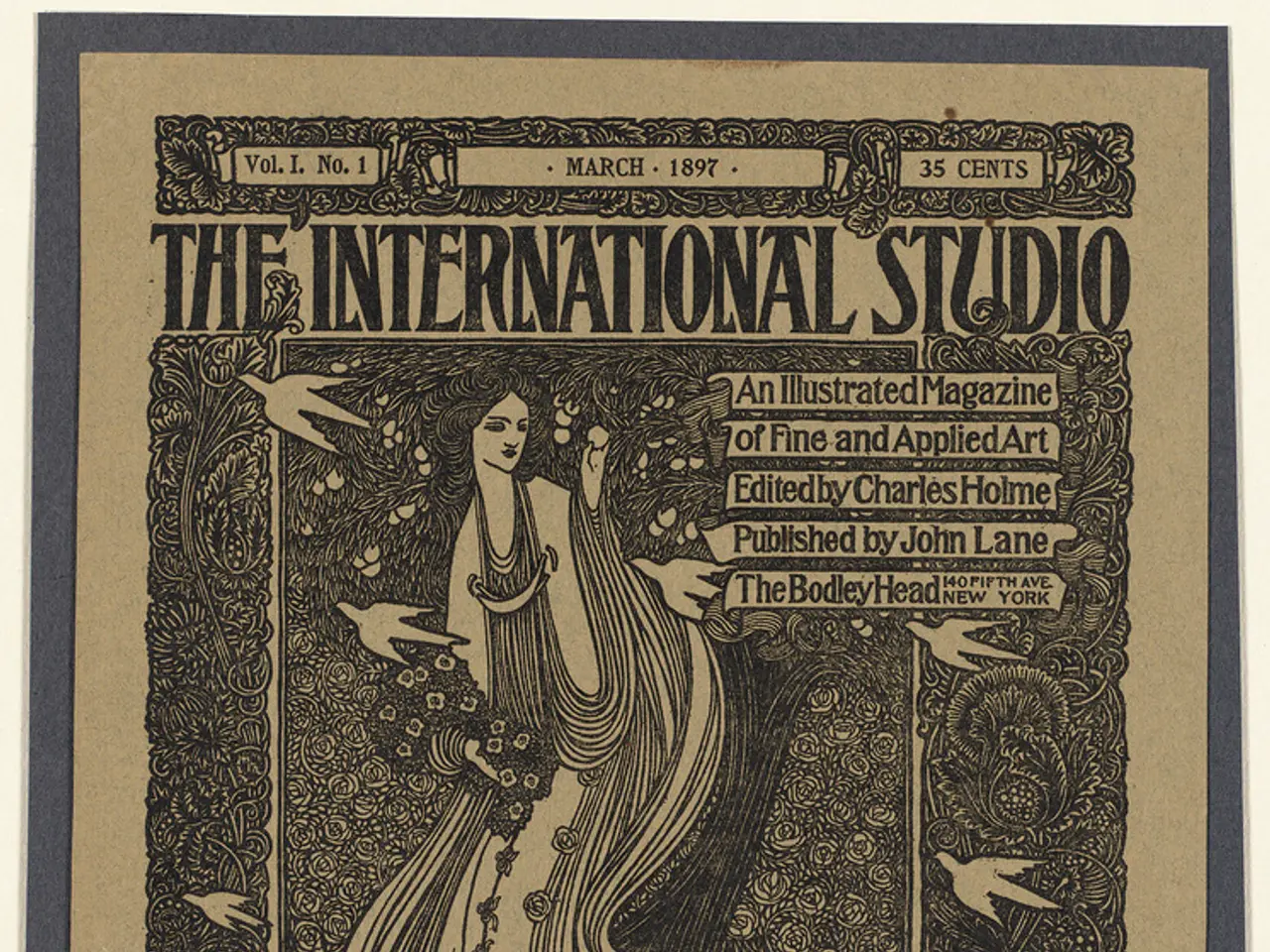Renowned Figure Yosano Akiko: Fervent Poet and Visionary Journalist
Yosano Akiko, a Japanese poet and social critic, left an indelible mark on the literary landscape and the broader society of Japan during the Taisho era (1912-1926). Known for her groundbreaking poetry and social commentary, she was a pioneer in challenging traditional norms and advocating for women's rights and gender equality.
Impact on the Japanese Literary Scene
Akiko's innovative poetry and modern translation efforts revitalized traditional forms like tanka poetry with passionate expressions of individualism and female desire. Her work, such as the collection Tangled Hair (published in Japanese as Midaregami), departed from the norms of a male-dominated literary environment, making a significant impact on the Japanese literary scene.
Akiko also translated classic works, like The Tale of Genji, for modern audiences, bridging classical Japanese literature with contemporary sensibilities and helping to define early 20th-century literary modernism in Japan. As a prominent figure active during the Taisho period, she was part of a broader movement that included other modern writers like Ryunosuke Akutagawa and Natsume Sōseki, contributing to a rich cultural flowering.
Contributions to Women's Rights and Gender Equality
Akiko was a vocal advocate for women's rights, directly challenging the traditional roles assigned to women. Through her writings, she supported women’s education, sexual freedom, and personal autonomy, questioning patriarchal norms. Her participation in Taisho-era debates about the "New Woman" (atarashii onna) represented a model of female independence and self-expression that inspired contemporary and subsequent feminist movements.
Her social criticism extended to supporting gender equality and critiquing the constraints placed on women in Japanese society. This made her an influential figure in the early feminist movement in Japan, contributing to shifts in social attitudes concerning women’s roles in family and society.
Legacy
Akiko's legacy includes pioneering a culturally transformative dialogue around gender and modernity in Japan. Her fearless exploration of female identity and sexuality helped lay the groundwork for feminist thought in modern Japan. Her literary innovations and public activism during the Taisho era helped establish a more open conversation about women’s rights, influencing later generations of writers and activists.
In addition to her literary achievements, Akiko was a working mother, raising 11 children. She also wrote children's stories and songs, and her journalistic activities, which have not received proper recognition, included contributions to newspapers and magazines on topics like education and gender equality.
Akiko's poems were even used in advertisements, such as those for the Calpis beverage, demonstrating her power as a celebrity and influencer. Her constant interest in world events remains inspiring today.
In summary, Akiko’s legacy during the Taisho era is that of a trailblazing literary figure who used her poetry and criticism to advance women's rights and gender equality, shaping modern Japanese literature and society.
- Akiko's passion for translation extended to works like The Tale of Genji, connecting classical literature with contemporary audiences.
- Akito's innovative tanka poetry, featuring expressions of individualism and female desire, energized traditional forms, revolutionizing the Japanese literary scene.
- Her collection, Tangled Hair, deviated from the norms of the male-dominated literary world, significantly impacting the Japanese literary landscape.
- Akiko was entwined with a broader cultural blossoming of Japan during the Taisho period, joining noteworthy contemporary writers such as Ryunosuke Akutagawa and Natsume Sōseki.
- Akiko advocated for women's rights and gender equality through her writings, challenging traditional roles and norms.
- Her groundbreaking support for women’s education, sexual freedom, and personal autonomy helped define the feminist movement in early 20th-century Japan.
- Akiko's social activism extended to gender equality, questioning societal constraints against women and inspiring feminist movements.
- Akiko's lasting impact includes fostering a transformative dialogue about gender and modernity, paving the way for future feminist thought in Japan.
- She was not just a literary icon but also a working mother, raising eleven children while still finding time for additional pursuits like children's literature and journalism.
- Akiko's journalistic activities, which have not been given sufficient recognition, dealt with topics like education, gender equality, and more, captured in various newspaper and magazine contributions.
- Her influence extended beyond literature, as poems were used in advertisements, such as those for Calpis, highlighting her celebrity status and impact on popular culture.
- Inspiring even today, Akiko's dedication to understanding world events and addressing critical societal issues serves as a reminder of her enduring impact on education, self-development, and personal growth.




